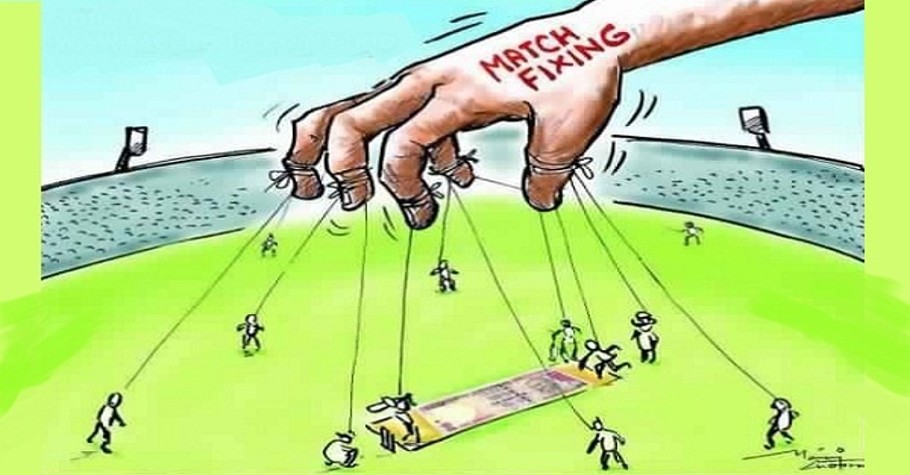 Sports
Sports
3 Match Fixing Incidents When Indian Players Chose Loyalty Over Money
3 Match Fixing Incidents When Indian Players Chose Loyalty Over Money: In the world of cricket, match-fixing has been a persistent issue for many years. Unfortunately, even India, a country that holds the sport near and dear to its heart, has not been exempt from this problem. In fact, just recently, news surfaced that Mohammad Siraj was asked to provide inside information during a previous tour of Australia. However, due to his unwavering loyalty to the game, Siraj turned down the offer and reported it to the Board of Control for Cricket in India (BCCI).
The act of match-fixing is a serious offense that not only undermines the integrity of the sport, but also puts the safety of players and fans at risk. It involves individuals intentionally manipulating the outcome of a game, often for financial gain. This not only goes against the spirit of fair play and sportsmanship, but also has a negative impact on the reputation of the game and the trust that fans have in it.
It is commendable that Mohammad Siraj, a player who has proven his skill and dedication time and time again, chose to prioritize the integrity of the sport over any personal gain. His actions serve as an example to all athletes and fans, reminding them that honesty and fair play are crucial components of any successful game.
It is important that steps are taken to prevent match-fixing from occurring in the future. This involves not only strict rules and regulations, but also education and awareness campaigns that emphasize the negative impact of such actions on the sport and its fans. It is only through a collective effort from all stakeholders, including players, officials, and fans, that we can ensure the continued success and integrity of cricket.
Indian Players Chosing Loyalty Over Money
Ishant Sharma
According to the reports, the first incident occurred in 2008 when India toured Australia for a four-match Test series. During the series, Indian bowler Ishant Sharma was approached by an Indian-origin Australian citizen who offered him a large sum of money to underperform in a particular match.
Sharma immediately reported the incident to the team management, and the matter was referred to the Anti-Corruption and Security Unit (ACSU) of the International Cricket Council (ICC). The ACSU conducted an investigation, but no evidence of wrongdoing was found. The Australian citizen was subsequently banned from all cricketing activities for five years.
ALSO READ: Women Cricketers Who Were Involved In Match Fixing
Mohammed Siraj
Indian fast bowler Mohammed Siraj, currently playing for Royal Challengers Bangalore in the IPL 2023, has reported a “corrupt approach” to the BCCI’s Anti Corruption Unit (ACU). A driver, who remains unidentified, allegedly sought inside information on RCB from Siraj.
Per BCCI’s code of conduct, players failing to report such approaches can face sanctions. Siraj, the leading wicket-taker for RCB, acted promptly by informing the ACU of the incident. The BCCI takes a strict stance against corruption and has mechanisms in place to prevent such malpractices in cricket.
Mohammed Shami
The third incident took place in 2015 during the ICC World Cup. A man who asserted to be an Australian citizen of Indian origin approached Mohammed Shami. The man offered Shami a large sum to underperform in a match against Pakistan. Shami immediately reported the incident to the team management, and the ICC’s ACSU launched an investigation. However, no evidence of wrongdoing was found, and the man could not be identified.
These incidents highlight the seriousness of the problem of match-fixing in cricket and the need for constant vigilance and action by cricketing authorities. It is also worth noting that in all three incidents, the Indian cricketers acted responsibly and immediately reported the incidents to the team management, who then informed the relevant authorities. This demonstrates the commitment of Indian cricketers to the integrity of the game.
Why Do Cricketers Do Match-Fixing?
Match-fixing is the practice of manipulating the outcome of a sporting event in exchange for financial or other benefits. It is a serious offense that threatens the integrity of the sport and undermines the trust of fans. Cricket, like many other sports, has been plagued by match-fixing scandals over the years, and it is important to understand why cricketers engage in this unethical and illegal behavior. There are several reasons why cricketers might engage in match-fixing.
Financial Gain
One of the most common reasons is financial gain. Many cricketers come from humble backgrounds and may not have access to the kind of wealth and luxury that comes with being a professional athlete. Match-fixing offers these players a way to earn a significant amount of money in a short period of time. They may be approached by bookmakers or other individuals who offer them money in exchange for manipulating the outcome of a match. In some cases, the players may be offered a lump sum payment or a percentage of the profits generated by the betting on the match.
Pressure To Perform
Another reason why cricketers might engage in match-fixing is the pressure to perform. Professional cricket is a highly competitive and demanding sport, and players are constantly under pressure to perform at their best. This pressure can be particularly intense for players who are struggling with their form or who are at risk of being dropped from the team. Match-fixing offers these players a way to ensure a favorable outcome and avoid the risk of failure.
Gambling Depts
In addition to financial gain and performance pressure, some cricketers may engage in match-fixing because of external factors such as personal problems or peer pressure. Players may be facing financial difficulties, such as gambling debts or family obligations, and may see match-fixing as a way to alleviate their problems. They may also be influenced by other players or team officials who are involved in match-fixing and feel pressured to participate in order to maintain their position on the team.
Lack Of Ethics
Furthermore, some cricketers may engage in match-fixing because of a lack of ethics or a sense of entitlement. These players may believe that they are entitled to manipulate the outcome of a match because of their talent or status as a professional athlete. They may also lack a strong moral compass and may not understand the negative impact that match-fixing can have on the sport and its fans.
It is also important to note that match-fixing is often facilitated by organized crime syndicates, who have the resources and connections to manipulate the outcome of matches. These syndicates may target vulnerable players who are in need of money or who can be easily influenced. They may also use threats or intimidation to force players to participate in match-fixing.
The consequences of match-fixing are severe and can have a lasting impact on the sport and its fans. Match-fixing undermines the integrity of the game and erodes the trust of fans, who expect to watch a fair and competitive match. It also has a negative impact on the careers and reputations of players who engage in this behavior, as well as the careers and reputations of those who are falsely accused of match-fixing. In addition, match-fixing can have serious legal consequences, including fines, bans, and criminal charges.
To combat match-fixing, cricket authorities have implemented a range of measures, including stricter regulations, increased surveillance, and stronger penalties for offenders. They have also worked to raise awareness among players and fans about the dangers of match-fixing and the importance of maintaining the integrity of the sport.
Match-fixing is a serious problem that requires constant vigilance and action from cricketing authorities. The incidents discussed in this article demonstrate the need for greater cooperation and action by cricketing authorities worldwide to prevent and combat match-fixing.
The issue of match-fixing is a serious one that requires immediate attention and action. The example set by Mohammad Siraj serves as a beacon of hope, highlighting the importance of honesty and fair play in cricket. It is up to all of us to work together to prevent such actions from occurring in the future, and to ensure that the sport remains a source of pride and joy for fans everywhere.
The impact of match-fixing is not limited to the players and officials involved. Sponsors, broadcasters, and other stakeholders can also suffer as a result of the scandal. The financial losses can be significant, and the damage to reputations can be long-lasting.
Match-fixing is a destructive practice that is destroying cricket. It erodes the integrity of the game, undermines public trust, and has devastating consequences for all those involved. It is up to all stakeholders in the sport to take a stand against match-fixing and work towards restoring the credibility of cricket.
Image Credit: Cricket Plays
For more fantasy sports news and poker promotions, keep reading GutshotMagazine.com. Follow us on Facebook, Instagram, Twitter, and Telegram.

Aakash Mishra is a fantasy writer and prediction aficionado. Being a cricket enthusiast himself, he loves to relate and propagate about how fantasy sports platforms can be advantageous in our day to day life. Along with foretelling match results, he enjoys writing about game forecasts for all fantasy sports.
Comments
Top 15 Fantasy Sports Sites
-
Kubera Fantasy
Use referral code GUTSHOT
Offer: Get Instant ₹100 FREE Register -
PlayerzPot
First deposit on PlayerzPot
Offer: Get 100% bonus up to ₹10,000 Register -
Fantasy Akhada
4% commission on friends' deposits
Offer: Sign-up & get ₹500 FREE Register -
BalleBaazi
Sign-up Now
Offer: Get ₹50 FREE Register -
My11Circle
Download the app
Offer: Get ₹1,500* FREE Register




















